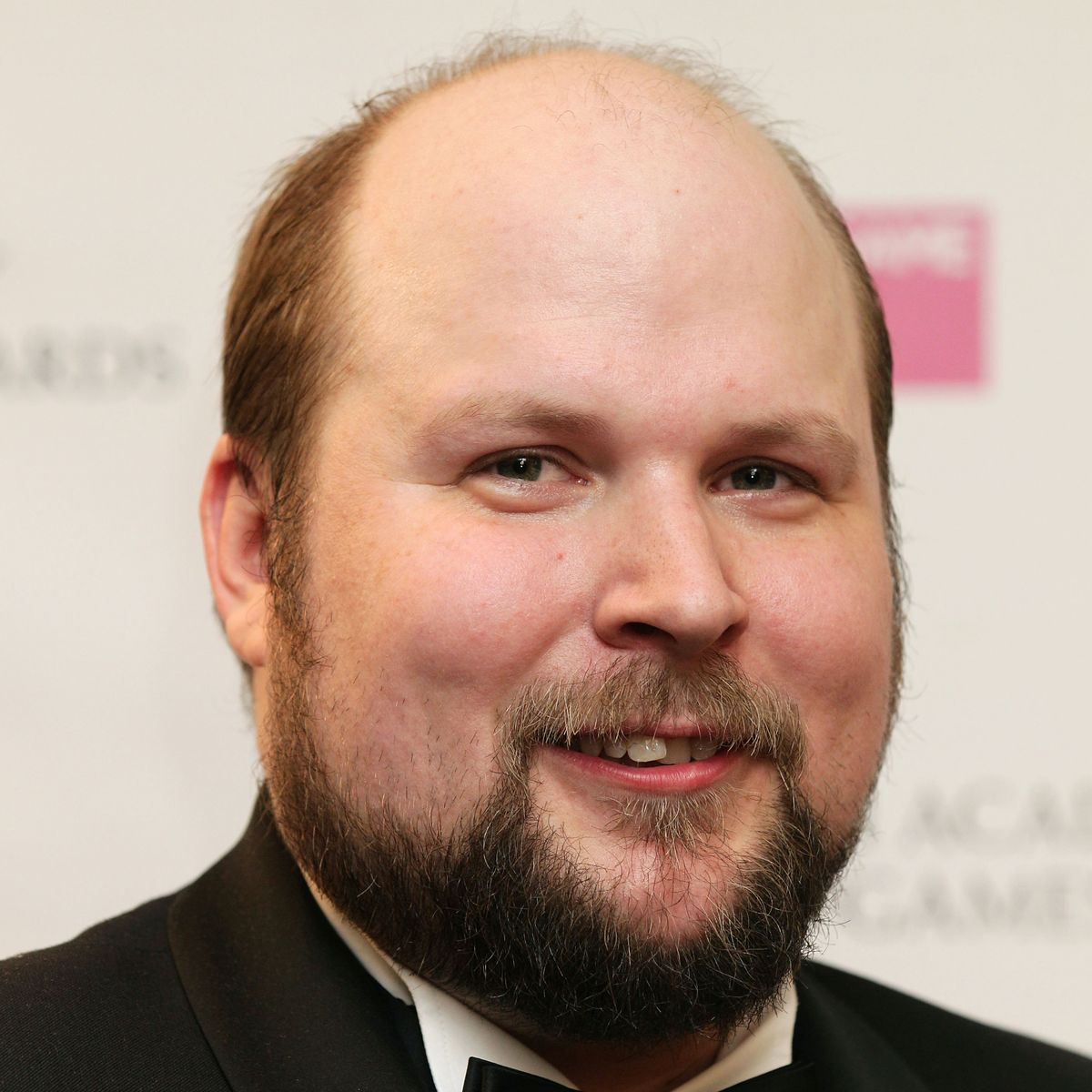Markus Persson: The Visionary Who Built Minecraft's World
In the vast, ever-evolving landscape of digital entertainment, few names resonate with the profound impact and enigmatic aura of Markus Persson. Better known by his iconic gaming handle, "Notch," this Swedish video game programmer stands as the singular visionary behind Minecraft, a game that transcended mere entertainment to become a global cultural phenomenon. His journey, marked by extraordinary creative genius, unprecedented financial success, and deeply personal struggles, paints a complex portrait of a modern-day digital architect.
From a childhood steeped in the burgeoning world of computers to becoming a billionaire who publicly grappled with the very success he meticulously crafted, Persson's narrative is a compelling saga of innovation, ambition, and the often-unforeseen consequences of achieving one's wildest dreams. This article delves into the life, achievements, and enduring legacy of the man who gave millions a boundless canvas for their imagination.
Table of Contents:
- The Genesis of a Gaming Icon: Markus Persson's Early Life and Passion
- The Birth of a Phenomenon: Minecraft's Humble Beginnings
- Mojang Studios: Building an Empire Around a Blocky World
- The Billion-Dollar Exit: Selling Minecraft to Microsoft
- Beyond the Blocks: Markus Persson's Post-Minecraft Life and Challenges
- Markus Persson's Enduring Legacy in Gaming
- What's Next for the Enigmatic Creator?
- Conclusion: The Complex Tapestry of Markus Persson's Journey
The Genesis of a Gaming Icon: Markus Persson's Early Life and Passion
Born Markus Alexej Persson on June 1, 1979, in Stockholm, Sweden, the future creator of Minecraft exhibited an early and profound fascination with computers. His mother, Ritva Persson, is of Finnish descent, while his father, Birger Persson, is Swedish. For the first seven years of his life, Markus Persson resided in Edsbyn, a small locality in Sweden, before his family moved back to Stockholm. It was during these formative years that the seeds of his remarkable career were sown.
By the tender age of eight, a period when many children are still mastering basic arithmetic, Markus Persson was already delving into the intricacies of computer code. This precocious talent wasn't just a fleeting hobby; it was a deep-seated passion that would define his life's trajectory. Despite his prodigious skills, Persson never completed a formal higher education, a testament to the idea that innate talent and self-driven learning can often surpass traditional academic paths in the world of software development. His early experiments with programming laid the groundwork for the groundbreaking work that would eventually redefine an entire industry, showcasing an intuitive understanding of digital mechanics long before he became a household name.
Personal Data: A Glimpse into Markus Persson's Background
To provide a clearer picture of the man behind the global phenomenon, here's a snapshot of Markus Persson's personal and professional data:
| Attribute | Detail |
|---|---|
| Full Name | Markus Alexej Persson |
| Known As | Notch |
| Date of Birth | June 1, 1979 |
| Place of Birth | Stockholm, Sweden |
| Nationality | Swedish |
| Parents | Ritva Persson (Mother), Birger Persson (Father) |
| Profession | Video Game Programmer, Designer, Entrepreneur |
| Notable Work | Creator of Minecraft |
| Company Founded | Mojang Studios (formerly Mojang AB) |
| Estimated Net Worth (Post-Sale) | Billionaire (from $2.5 billion sale) |
The Birth of a Phenomenon: Minecraft's Humble Beginnings
The journey of Minecraft began not in a sprawling corporate office, but in the mind of Markus Persson, fueled by his long-standing passion for game development. Inspired by games like Dwarf Fortress and Infiniminer, Persson envisioned a sandbox game where players could freely build and explore a world made entirely of blocks. He started developing Minecraft independently, initially releasing early alpha versions to the public in 2009. What began as a personal project, coded primarily in Java, quickly garnered a dedicated following.
The game's unique selling proposition was its unparalleled freedom. Unlike many games with linear narratives or predefined objectives, Minecraft offered players an open-ended experience. They could mine resources, craft tools, build intricate structures, and explore vast, procedurally generated landscapes. This creative liberty resonated deeply with players worldwide, fostering a sense of ownership and community that was rare in the gaming world. The simplicity of its blocky graphics belied a profound depth of gameplay, allowing for everything from simple shelters to elaborate, functional computers within the game world. This innovative approach to gameplay, championed by Markus Persson, laid the foundation for an unprecedented success story, proving that sometimes, the most compelling experiences are those that empower players to create their own.
Mojang Studios: Building an Empire Around a Blocky World
As Minecraft's popularity exploded, it became clear that the project had outgrown its one-man development status. To manage the burgeoning community, ongoing development, and commercial aspects of the game, Markus Persson founded Mojang AB (later renamed Mojang Studios) in 2010. He co-founded the company with Jakob Porsér and Carl Manneh, transforming his passion project into a legitimate enterprise. Mojang quickly became a hub for talented developers and artists, all working to expand and refine the blocky universe that had captivated millions.
Under Persson's creative leadership, Mojang cultivated a unique relationship with its player base, often incorporating community feedback into updates and fostering a sense of shared ownership over the game's evolution. This transparent and community-driven approach was revolutionary at the time and contributed significantly to Minecraft's organic growth. The company's success wasn't just measured in sales figures; it was evident in the vibrant ecosystem of content creators, modders, and educators who used Minecraft as a platform. Mojang Studios, born from the vision of Markus Persson, became more than just a game development company; it became the steward of a digital world that continued to grow and inspire, cementing its place as a major player in the global gaming industry.
The Billion-Dollar Exit: Selling Minecraft to Microsoft
In a move that sent shockwaves through the gaming world, Markus Persson, along with his co-founders at Mojang Studios, announced in September 2014 that they were selling the company and the rights to Minecraft to Microsoft for an astounding $2.5 billion. This monumental acquisition marked one of the largest deals in the history of video games, instantly transforming Markus Persson into a billionaire. The decision to sell, particularly for a creator who had cultivated such a close relationship with his community, was met with a mix of understanding and bewilderment.
For Persson, the sale represented an opportunity to step away from the immense pressure and public scrutiny that came with being the creative lead of one of the world's most popular games. He publicly stated that he felt the weight of being a symbol for something so massive, and the expectations that came with it, had become overwhelming. He wanted to return to smaller, more experimental projects, free from the burden of managing a global phenomenon. The sale allowed him to "abruptly took $2.5 billion and walked away," a decision that, while financially lucrative, also highlighted the personal toll that extraordinary success can exact on an individual. This departure marked the end of an era for Markus Persson's direct involvement with Minecraft, ushering in a new chapter for both the game and its original creator.
Beyond the Blocks: Markus Persson's Post-Minecraft Life and Challenges
After the sale of Mojang to Microsoft, Markus Persson found himself in an unprecedented position: a billionaire at a relatively young age, free from the daily demands of running a major game studio. However, this newfound freedom and immense wealth did not bring unadulterated happiness. The "Data Kalimat" explicitly states that he "has publicly struggled with success, his past, his demons, and controversy." This candid admission reveals a complex personal journey that unfolded after achieving what many would consider the pinnacle of professional success.
His struggles were multifaceted. The sudden shift from a passionate indie developer to a global icon, followed by an abrupt departure from the very creation that made him famous, left him navigating uncharted emotional territory. The weight of public expectation, the scrutiny of millions, and the loneliness that can accompany immense wealth became apparent. While he had the financial means to pursue any endeavor, the creative drive that once fueled him seemed to be overshadowed by a sense of isolation and disillusionment. This period highlighted that even the most celebrated achievements do not always translate into personal contentment, and that the human element of success is often far more intricate than the financial figures suggest.
The Weight of Success: Navigating Public Scrutiny
The sheer scale of Minecraft's success meant that Markus Persson was no longer just a programmer; he was a public figure, a "deity to millions in his virtual world." This elevation came with an intense level of scrutiny that he seemed unprepared for. Every tweet, every public statement, and every personal opinion was amplified, dissected, and often criticized by a global audience. The pressure to constantly live up to the image of the beloved creator, coupled with the loss of creative control over his magnum opus, contributed to a sense of disconnect and unease.
He expressed feelings of isolation, despite his immense wealth, often lamenting the difficulty of forming genuine connections when people perceived him primarily through the lens of his financial status or his creation. This public struggle with the trappings of success served as a stark reminder that fame and fortune, while coveted, can also be incredibly isolating and demanding, particularly for individuals who may not inherently seek the spotlight.
Controversies and Public Perception: A Complex Legacy
In the years following the Microsoft acquisition, Markus Persson also found himself embroiled in various controversies, largely stemming from his public statements and social media activity. His online presence, once a direct line to his passionate fanbase, became a source of contention. Some of his remarks, particularly on social and political topics, drew widespread criticism and alienation from parts of the very community that had celebrated him.
These controversies further complicated his public image and contributed to the "demons" he publicly alluded to. The narrative around Markus Persson shifted from solely being the genius creator of Minecraft to a more complex, and at times polarizing, figure. This period underscores the challenges faced by public figures in the digital age, where personal opinions can quickly become global headlines and shape public perception, regardless of past achievements. His journey post-Minecraft is a testament to the intricate relationship between personal identity, public persona, and the enduring impact of one's creations.
Markus Persson's Enduring Legacy in Gaming
Despite the personal struggles and controversies that have marked his post-Minecraft life, the legacy of Markus Persson in the video game industry is undeniably monumental and largely positive. He is not just a renowned Swedish video game designer and programmer; he is the architect of a cultural touchstone. Minecraft, his magnum opus, didn't just sell millions of copies; it fundamentally altered perceptions of what a video game could be. It championed player agency, creativity, and emergent gameplay at a time when many mainstream titles were moving towards more linear, cinematic experiences.
Persson's success with Minecraft also served as a powerful inspiration for countless independent game developers. He demonstrated that a small team, or even a single individual, with a compelling idea and the technical prowess to execute it, could compete with and even surpass the offerings of large, established studios. This fueled the indie game boom, encouraging innovation and diversity within the industry. His story is a testament to the power of a singular vision and the transformative potential of digital creativity, earning him numerous accolades and a permanent place in the pantheon of gaming legends.
Minecraft's Unstoppable Influence
The influence of Minecraft, born from the mind of Markus Persson, extends far beyond the realm of entertainment. It has become an educational tool, used in classrooms worldwide to teach subjects ranging from coding and engineering to history and urban planning. Its block-based mechanics have inspired countless other games, leading to a new sub-genre of sandbox and crafting titles. The game's vibrant community continues to thrive, creating endless content, modifications, and shared experiences that ensure its relevance years after its initial release.
Minecraft's impact on popular culture is also undeniable, with merchandise, spin-off media, and references appearing across various forms of entertainment. It has transcended its status as a mere game to become a platform for creativity, social interaction, and even professional careers for content creators. This enduring, pervasive influence is the ultimate testament to the groundbreaking vision of Markus Persson, who, with simple blocks, built a world that continues to inspire and engage millions across generations.
What's Next for the Enigmatic Creator?
Following his departure from Mojang and the sale of Minecraft, Markus Persson has largely maintained a lower public profile, particularly regarding his game development activities. While he continues to engage on social media, his professional endeavors have been less in the spotlight compared to his Minecraft era. He has hinted at working on smaller, more experimental projects, returning to the roots of independent game development that he initially embraced. However, none of these have achieved the global recognition or commercial success of Minecraft, nor were they perhaps intended to.
His current focus appears to be on personal well-being and exploring new interests, rather than chasing another billion-dollar hit. The freedom afforded by his wealth allows him to pursue passions without the immense pressure of public expectation or financial necessity. While the gaming world often speculates about his next big move, Markus Persson seems content to live a life less defined by the demands of a massive enterprise. His journey post-Minecraft serves as a fascinating case study on how individuals cope with extreme success and the choices they make when traditional motivations for work are no longer paramount. Whatever his future holds, his indelible mark on the gaming industry is already secured.
Conclusion: The Complex Tapestry of Markus Persson's Journey
Markus Persson, or Notch as he is universally known, is a figure of profound significance in the annals of video game history. From a prodigious child programmer in Stockholm to the billionaire creator of Minecraft, his story is one of extraordinary talent, groundbreaking innovation, and the unforeseen complexities of immense success. He built a virtual world that empowered millions, fostered a global community, and reshaped the landscape of interactive entertainment.
Yet, his journey also serves as a poignant reminder that wealth and fame do not always equate to contentment. His public struggles with the weight of his achievements, his past, and the controversies that have shadowed him paint a more nuanced picture of a human being grappling with an almost mythical status. Regardless of his personal challenges, the impact of Markus Persson on gaming is undeniable and enduring. He gave us Minecraft, a timeless sandbox that continues to inspire creativity and connection across the globe. His legacy is not just in the code he wrote, but in the millions of worlds built, stories told, and friendships forged within the blocky confines of his creation. We invite you to share your thoughts on Markus Persson's incredible journey and the impact Minecraft has had on your life in the comments below. What do you think is his most significant contribution to gaming? Share this article with fellow enthusiasts and explore more of our content on the pioneers who shaped the digital world.

Markus Persson

Markus Persson

Markus Persson